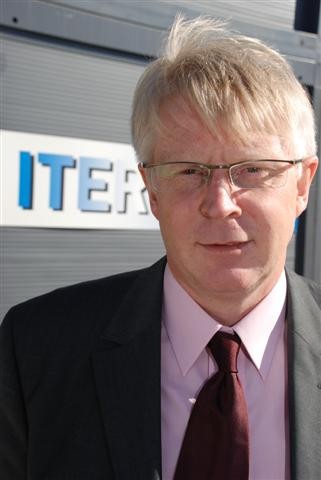ITER NEWSLINE
33
Forging agreement on a common goal: to build ITER
Norbert Holtkamp is the ITER Principal Deputy Director-General
Forging agreement on a common goal: to build ITER

"It won't get boring," says PDDG Norbert Holtkamp.
Over the past six months the project has made visible progress finalizing the design of ITER by addressing major issues that the Science and Technology Advisory Committee (STAC) wanted to see resolved before moving on to construction. We presented the result of this endeavour to the STAC members who expressed their satisfaction at the ITER Organization's approach. The committee recommends that the design changes should now be incorporated in the revised ITER technical baseline design and then transmitted to the ITER Council for approval this June.
The two-day Management Advisory Committee (MAC) followed, including a joint session with the STAC on Wednesday morning. In this meeting we presented a new reference project schedule which has been developed together with the Domestic Agencies over the last nine months in a series of workshops where we went through the construction and installation process in great detail. "Realistic but aggressive" was the MAC verdict. A presentation followed of the resources needed to meet the new reference project schedule. With little time to spend and a lot of information provided, the MAC concluded that the ITER Organization had done a good job responding to the request to assess resources, but that it needed more time to fully understand the reply. Frank Briscoe, expert adviser to the European MAC delegation, was charged with carrying out an in-depth review of the cost assessment over the next two months.
On Friday and Saturday, the Contact Person Working Group (CPWG) worked with great rigour on the preparation of the ITER Council meeting in June in Aomori. Another important step was taken during this meeting: the Test Blanket Module Program, not yet part of the ITER construction project, will be included providing that the Council accepts our proposal. The Test Blanket Module Program has always been an ITER mission. Now that the program has matured, it is ready to come under the umbrella of the ITER Agreement.
Finally, yesterday, the ITER Organization met the Heads of the Domestic Agencies and their delegates. These IO-DA meetings are key for the successful implementation of all recommendations and requests. We went through another long day together making sure that construction continues according to plan and that components are being built on schedule.
After all these discussions with the various advisory bodies, the message is clear: make it cheaper, make it faster and make it better! Both the IO and the Domestic Agencies got the message loud and clear and we will come up with appropriate proposals. So, one thing is for sure: the next six months won't be boring.
return to Newsline #33


